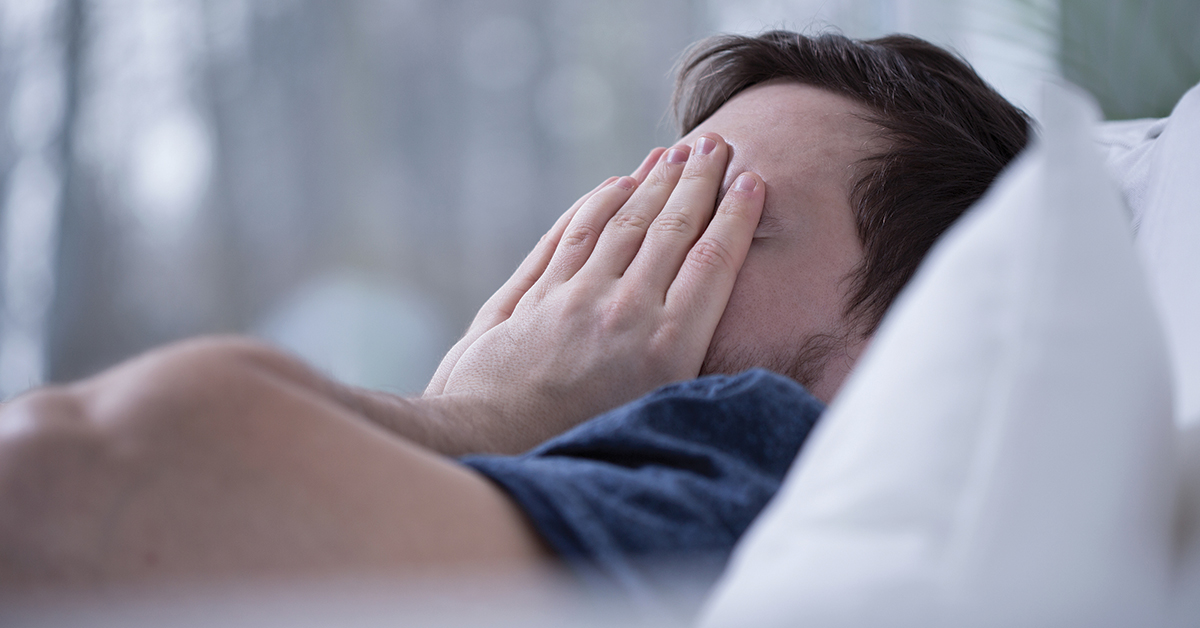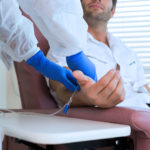
07 Nov How Long Do Opiate Withdrawals Last?
Table of Content
Cricket noises stop, and birds begin chirping. You can hear the garbage truck make its morning route a few blocks away. The sprinklers begin to shower your yellow-stained grass, and the neighbor’s dog lets out a series of barks.
The sun finally makes it into your window, forcing you to squint your eyes and turn to your side.
The alarm goes off.
Tomorrow is finally here, a new day is about to begin, and you couldn’t be more devastated about it.
No, not because you have to go work or drop off the kids from school. Not because you have to get groceries and drop off a package at the post office.
You’re miserable because yesterday night you took the last of your oxycodone—and you have no idea when your next dose will come. To make things worse, you also have about $7 dollars in your wallet and $11 dollars in your checking account—not exactly the type of money that is going to get you your fix.
But, finally, you lethargically slither out of bed and achingly make your way to the bathroom. Every step is painful, and you begin to think to yourself, “there is no way I’m going to work today.”
You willfully avoid looking yourself in the mirror because, “why bother?”
Reality slowly begins to creep in, your heart begins to pound, your mind begins to race and your hands begin feel cold and clammy. The withdrawals seem to be escalating at a rate faster than they have ever before, and there is nothing you can do.
How long do opiate withdrawals last? Withdrawal from prolonged opiate usage comes with it a series of debilitating, emotionally exhausting and physically painful repercussions. Although it feels like the effects will never dissipate, with time, and with proper detox procedure, you will feel better. But the process of getting there is incredibly challenging, and one false decision can leave you right back at square one.
Understanding How Long it Takes for Your Body to go Through Opiate Withdrawal
As your system begins to go through its recovery of post-drug use, many things will begin to happen. The overall negative symptoms of opiate withdrawal usually begin to dissipate after a few weeks, but this is dependent on a variable of things including:
- Duration of opiate drug use
- Drug quality/chemical makeup
- The body’s metabolism
- How the individual administered the drug (e.g., smoking, snorting, intravenously, etc.)
- Hydration
- Genetic history
- Amount of opiates are taken in one dose
- Health of internal organs
- Previous medical conditions, such as depression and anxiety
- If you taper of from opiate drug use
- If you quite opiate drug usage “cold turkey”
- How your keep yourself busy
Ultimately, opiate withdrawal has no tangible time period regarding when it will exactly end. For some, the negative effects begin to decrease within a few days, and for others, it takes months.
When an opiate drug abuser discontinues usage, the brain begins to “panic” and crave what is no longer there. That’s because the brain has discontinued producing its own set of natural opiates due to the previous foreign administration.
Opiate withdrawal is a dangerous and potentially deadly situation. Many find the first 24 hours to be the most intense and emotionally draining part of the withdrawal process.
For some, the withdrawal symptoms won’t even begin till after 24 hours has passed. The reason for this drastic differentiation in withdrawal experiences is because for opiate users that are consistently on the drug, the longer the brain waits without the chemicals, the shorter the withdrawal effects begin—and vice versa.
Drug users that are currently going through withdrawal or chose to enter detoxification should seek immediate medical assistance and/or consultation before opiate use is discontinued.
What is Dopamine?
Although the topic of dopamine and its various functions are part of much controversy among the neurology community, in its most basic definition, it’s a natural neurotransmitter. A neurotransmitter is chemical in the brain that is responsible for transmitting signals to neurons.
When something good happens in life such as success, sex, fun, etc., dopamine sends messages to neurons alerting the brain that you deserve a reward. This after effect results in feelings of warmth, decreases pain, slows breathing, increases satisfaction, energy, fulfillment and joy, and reduces anxiety.
These feel good effects notify the brain to remember (i.e., document) when the right times in life to release dopamine—and how quickly to respond.
Why Opiate Usage Alters the Brain’s Natural Processing
When a drug user takes opiates, the brain begins to interpret the chemical as a natural neurotransmitter; opiates stimulate opioid receptors in the brain, essentially mimicking in natural structure and activating nerve cells. By fooling the brain’s receptors, opiates are now free to target the brain’s reward system, thus releasing dopamine.
Obviously, the effects of dopamine are highly sought out for because of the immediate pleasure they release, which is why opiate abuse is such a common problem.
The consistent use of opiate use results in the brain to interpret things differently, thus modifying what the brain perceives as normal and altering how it produces natural feel-good chemicals.
Opiate drug use essentially “cuts out the middleman” by tricking the brain that something good has happened. The brain begins to confuse good things that were done naturally and good things were done unnaturally. Instead of exercising, winning a soccer game, watching a funny movie with your family and friends or getting an A+ on a essay—all the individual has to do is take drugs to achieve the same feel-good effect.
Heroin Withdrawal
In the 1800s, heroin was actually used in medical practice. Although heroin is obviously no longer used in today’s medicine, it’s important to note that the drug was first used as an effective painkiller. When an opiate prescription drug abuser no longer has access to painkillers, heroin serves as a feasible and effective alternative option.
One of the biggest reasons why opiate drug abusers turn to heroin is it’s also a much cheaper alternative to prescription painkillers. Street value of drugs likes oxymorphone, oxycodone and morphine can cost anywhere between $30 to $100 per pill. For addicts, this is where the majority (if not all) of their income is centered on.
However, heroin has a street value that is a much more attainable for consistent abusers (i.e., approx. $10 per dose).
Prescription drugs are also a lot harder to find nowadays.
In the United States, painkiller usage now outweighs tobacco use—a difficult and disturbing reality to fathom.
The upsurge in opiate prescriptions legally available to US patients has caused thousands to die each year, and more to have become addicted. State legislatures, law enforcement, and regulatory (government) agencies continue to tighten down on the manufacturing and availability of prescription painkillers. This has caused the street value in prescription painkillers to go up, and with demand higher than it’s ever been, the supply of heroin has been made more available.
Heroin is also easier to use. Prescription painkillers are manufactured to give people relief from pain, not to get people high. So, many opiate prescription pills are engineered with extended release formulas, which are coated properties that mitigate the immediate release of the drug’s effects.
Drug abusers want to experience the euphoric effects immediately, which means they often have to crush or chew the pill in order to breakdown the extended release protection.
Heroin Withdrawal Symptoms
- Weak and lethargic
- Vomiting
- Depression
- Extreme Irritability
- Tiredness
- Anxiety
- Muscle spasm
- Chills and fever
- Diarrhea
- Difficulty sleeping
- Difficulty waking
- Itching
- Inability to focus
- Shallow and/or difficulty breathing
- Cold sweats
How to Mitigate Post-withdrawal Cravings of Opiates
Once you make it past the initial stages of withdrawal, you will experience cravings. It’s important to not only acknowledge cravings, but to also have the tools in place to help you overcome and eliminate the potential to relapse.
- The urge to use is normal – whether it’s months, or even years, cravings should be expect. Unfortunately, do to the powerfully attractive effects of opiates; your brain will always have a “soft spot” to continue using.
- It doesn’t mean you’re sick – after you successfully make it through withdrawal, feelings to continue to use can make you feel confused and irritable. It’s imperative to realize the urge to use doesn’t necessarily mean there is something wrong.
- Everyone’s different – Others may find relief in reading a book or exercising, however, in your case, strategies to succumb feelings of cravings may be unique. Find it is what you enjoy doing. Experiment with different activities that you enjoy—and never give up hope.
- Cravings are in your head–It’s important to note that cravings are psychological feelings. And feelings change. Whether you’re happy, sad, angry, anxious, etc., your mind will eventually think about something else—not matter what the feeling is.
- Cravings come in spurts – Sometimes you see them coming form a mile a way. Other times they are completely unexpected and surface at the worst time imaginable. Cravings are like earthquakes: it’s hard to anticipate when they will happen.
Psychological Factors That Effect Cravings
When and where do cravings occur? Research shows that the brain is susceptible to social triggers, which can cause immediate cravings.
- Exposed –Being exposed to opiates, whether it be a commercial on TV or visiting your grandmother’s nursing home, craving can surface
- The urge to enjoy something more – opiates have an incredible ability to make enjoyable things even more enjoyable. Sometimes even when you’re having fun, the urge to take opiates overtakes all other feelings.
- Association – perhaps there was a specific friend you always did opiates with, a shopping mall where you always got high, a song, a TV show, a time in the day, a certain smell, a holiday, etc., cravings are strongly aligned with past experiences.
- When you’re feeling down –Negative thoughts, social anxiety and depression are just some of the biggest reasons why so many abuse opiates. Negative feelings will inevitably exist, and the urge to use drugs will once again surface.
Things You Can do to Reduce Cravings
- Write – Not a fan of writing? Well, you may just find your newest obsession. Take an introspective approach to your cravings; consider buying a journal and jot down when and where cravings occur. This strategy will help you better understand your triggers, and overall, help take control of your cravings.
- Exercise—Working out is widely considered the most effective method for mitigating cravings. That’s because when you exercise, you experience similar effects of opiate drug use. Dopamine is naturally released when you exercise, thus giving you what many refer to as the “runner’s high.
- Endure – For some, distractions and physical activity may not be an effective tool to remedy cravings. Facing your cravings head on and thinking about how they’ve negativity impacted your life may remind you of just how far you’ve come.
- Have a plan –If you are going to be around certain people or a certain that triggers your cravings, it’s important to have a strategy ready. By staying prepared, and knowing what’s to come, you give yourself the best opportunity.
- Positivity –Although it may seem impossible to stay positive, you are your best weapon to get through the cravings. Tell yourself you’re going to get through this. Tell yourself you’re worth pain and strong enough to endure the pain. Tell yourself you’re proud at how far you’ve come and deserve to be happy.
- Talk –There is something powerfully effective about talking. Keeping your feelings inside without discussing them can ruminate and grow, becoming more intense over time.
Talking about your cravings can be embarrassing to some, which is why it is so commonly avoided. If embarrassment is keeping you from talking about your cravings, visit a doctor. However, talking with friends and family can help you to build a support group that is conscious of what you’re going through. The more friends and family know what is going on, the more they will be able to suppress your cravings.
Sources:
“Opiate Withdrawal and Detox.” Addiction Center. 14 Feb. 2019. 13 Mar. 2019. https://www.addictioncenter.com/opiates/withdrawal-detox/
“Opiate and Opioid Withdrawal.” Medline Plus. 13 Mar. 2019. https://medlineplus.gov/ency/article/000949.htm
Lautieri, Amanda. “Opiate Withdrawal Timelines, Symptoms and Treatment.” American Addiction Centers. 13 Mar. 2019. https://americanaddictioncenters.org/withdrawal-timelines-treatments/opiate







No Comments